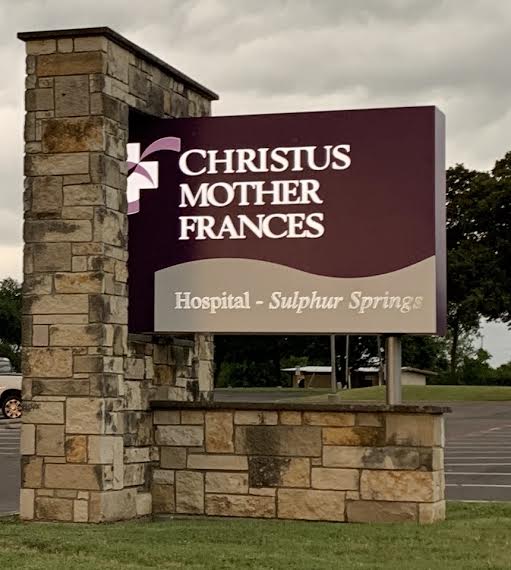I wouldn't go there if all they are offering is 'care'; NOT RECOVERY!
Anytime I see 'care' in any stroke press release I know the stroke medical world is not
willing to disclose actual results because they are so fucking bad, it
wouldn't look good, so misdirection is used. Don't fall for that
misdirection! By touting 'care' they are not telling you about results or recovery which survivors want! Survivors
don't care about your 'care'; you FUCKING BLITHERING IDIOTS;
they want 100% recovery! Why aren't you providing that?
Big fucking whoopee.
But you tell us NOTHING ABOUT RESULTS.
They remind us they 'care' about us multiple times but never tell us
how many 100% recovered. You have to ask yourself why they are hiding
their incompetency by not disclosing recovery results. ARE THEY THAT FUCKING BAD?
Three measurements will tell me if the stroke medical world is possibly not
completely incompetent; DO YOU MEASURE ANYTHING? I would start cleaning
the hospitals by firing the board of directors, you can't let
incompetency continue for years at a time.
There is no quality here if you don't measure the right things.
-
tPA full recovery? Better than 12%?
-
30 day deaths? Better than competitors?
rehab full recovery? Better than 10%?
rehab full recovery? Better than 10%?
You'll want to know results so call that hospital president(whomever that is) RESULTS are; tPA efficacy, 30 day deaths, 100% recovery. Because there is no point in going to that hospital if they are not willing to publish results.
In my opinion this partnership allows stroke hospitals to continue with their tyranny of low expectations and justify their complete failure to get survivors 100% recovered. Prove me wrong, I dare you in my stroke addled mind. If your stroke hospital goal is not 100% recovery you don't have a functioning stroke hospital.
All you ever get from hospitals are that they are following guidelines; these are way too static to be of any use. With thousands of pieces of stroke research yearly it would take a Ph.D. level research analyst to keep up, create protocols, and train the doctors and therapists in their use.
If your stroke hospital doesn't have that, you don't have a well functioning stroke hospital, you have a dinosaur.
Read
up on the 'care' guidelines yourself. Survivors want RECOVERY not 'care'
“What's measured, improves.” So said management legend and author Peter F. Drucker
The latest invalid chest thumping here:
CHRISTUS Mother Frances Hospital – Sulphur Springs receives national award for stroke care
(SULPHUR SPRINGS, Texas) – CHRISTUS Mother Frances Hospital – Sulphur Springs is being
recognized for excellence in stroke care by the American Heart Association and American
Stroke Association.
The national award, Get With The Guidelines – Stroke, is given to hospitals who have demonstrated excellence in stroke care. The recognition was created to highlight the health care facilities providing the most up-to-date, research-based guidelines and quick recovery times.
CHRISTUS Mother Frances Hospital – Sulphur Springs earned a gold plus distinction, indicating the hospital has met or exceeded standards for at least 24 months, and elite honor roll recognition, awarded for achieving a door-to-needle time of less than 60 minutes for at least 85% of stroke patients.
“Earning these awards provides confidence in the medical care CHRISTUS Mother Frances Hospital – Sulphur Springs provides for the community we serve,” said Kala Anders, stroke program coordinator. “Receiving these nationally recognized distinctions exemplifies our dedication to having a well-rounded multidisciplinary stroke team and program that serves our community and those surrounding.”
On average, every 40 seconds, someone in the U.S. has a stroke and every 3 minutes and 11 seconds, someone dies of stroke, according to the U.S. Centers for Disease and Prevention.
Stroke is the fifth leading cause of death and a leading cause of adult disability in the U.S.
A stroke occurs when a blood vessel carrying oxygen and nutrients to the brain bursts or is blocked by a clot. When this happens, parts of the brain cannot get the blood and oxygen needed, causing brain cells to die.
Anders said being able to react swiftly to a stroke is key to help minimize the long-term effects of a stroke and even prevent death, emphasizing the access to stroke care for rural communities is vital.
“It’s a common assumption among rural communities in the country that to receive specialty care for things such as stroke, you need to go to large cities,” Anders said. “These recognitions solidify that exemplary clinical stroke care and evidence-based, innovative treatment can be and is being provided to the people in rural communities such as ours in Hopkins County.”

No comments:
Post a Comment